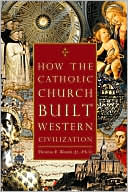From Townhall:
President Barack Obama says he would lower taxes on 95 percent of Americans now and raise them on the rich in 2011. Republicans say he will increase taxes for all and in the midst of a recession to boot.
So who's right?
Yes, all Americans would pay more under the president's policies. His own aides concede that.
But no, Obama would not raise taxes in the midst of a recession, as long as his economic assumptions bear out....
THE CLAIM: "The president's budget increases taxes on every American, and does so during a recession," said Rep. Dave Camp of Michigan, the top Republican on the tax-writing House Ways and Means Committee.
"Let's just be honest and call it a carbon tax that will increase taxes on all Americans who drive a car, who have a job, who turn on a light switch, pure and simple," House Minority leader John Boehner, R-Ohio, said of Obama's plan to impose a tariff on polluters.
THE FACTS: Under Obama's plan, tax cuts enacted under President George W. Bush for families making more than $250,000 would be allowed to expire in 2011, increasing the top income tax rate from 35 percent to 39.6 percent. The top capital gains tax rate would jump from 15 percent to 20 percent....
...Obama also would impose fees on greenhouse gas producers, including power plants that burn fossil fuels, by auctioning off carbon pollution permits. The goal is to reduce the emissions blamed for global warming. The fees would raise a projected $646 billion over 10 years.
Obama aides don't dispute that consumers will get the passed-along costs. In testimony to the House Ways and Means Committee in September, White House budget chief Peter Orszag, then the director of the Congressional Budget Office, said companies that have to pay the emissions fees "would not ultimately bear most of the costs of the allowances. Instead, they would pass them along to their customers (and their customers' customers) in the form of higher prices."...
...Arguments that the mere expectation of direct or indirect taxes or fees is damaging in a recession are based on a 19th century economic theory that taxpayers will anticipate higher taxes when a government operates at a deficit and will hoard, not spend, their money. ...(read the article here)


No comments:
Post a Comment